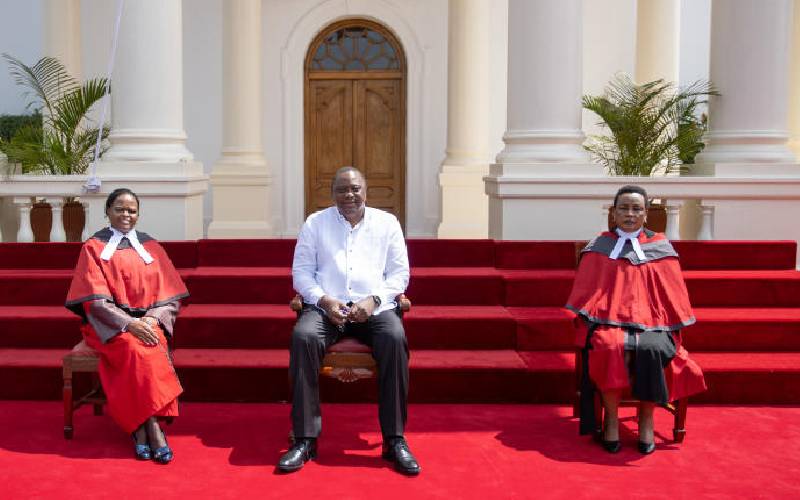×
The Standard e-Paper
Fearless, Trusted News

President Uhuru Kenyatta with newly Chief Justice Martha Koome and Justice Philomena Mwilu at State House, Nairobi. [Courtesy]
Now that some of the dust has settled on the ruckus around the appointment of judges, we can perhaps critically and soberly analyse some of the key factors around the same. The most contentious was why the president selectively appointed some judges while leaving others out, and whether he had any legal leeway to do so.